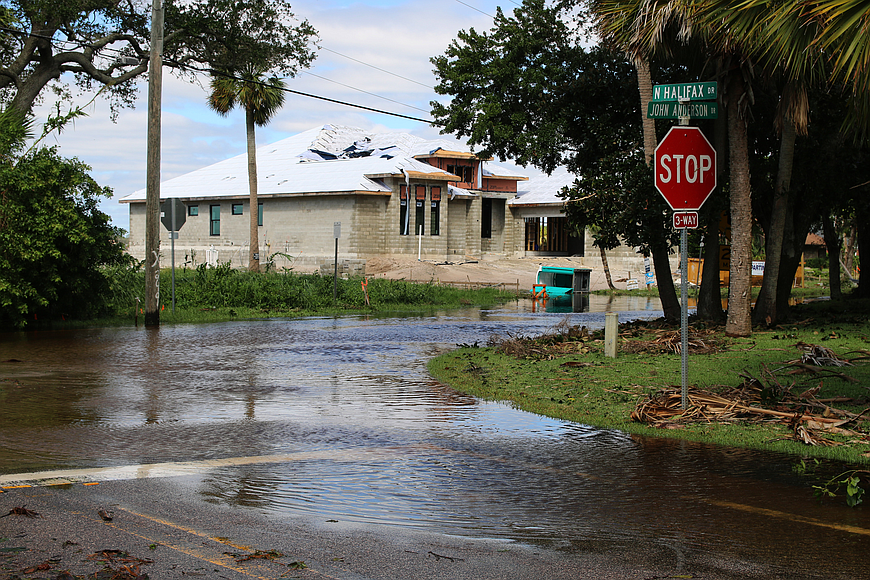- January 14, 2025
-
-
Loading

Loading

by: Volusia County Community Information
Volusia County residents who have been adversely impacted by Hurricane Ian may apply for Individual Assistance through the Federal Emergency Management Agency (FEMA).
Assistance may include grants to pay for temporary housing, emergency home repairs, uninsured and underinsured personal property losses, and medical, dental and funeral expenses caused by the disaster, together with other serious disaster-related expenses.
Individual assistance received through disaster-associated grants is not taxable income and will not affect eligibility for Social Security, Medicaid, medical waiver programs, welfare assistance, Temporary Assistance for Needy Families, food stamps, Supplemental Income, Social Security Disability Insurance or any other federal benefits.
Residents may apply online at www.disasterassistance.gov, through the FEMA app, or by calling 800-621-3362.
Representatives will be available to take calls through this number from 7 a.m. to 11 p.m.
If you use a relay service, such as video relay (VRS), captioned telephone or other service, give FEMA the number for that service. County officials encourage residents who are applying for assistance to download the FEMA app; it will allow residents to check the status of their applications.
The county will serve as a resource to assist residents in applying for FEMA assistance. The Volusia County Public Library system has six branches in operation with internet access. Staff is ready to help residents submit applications at these branches:
For updates regarding available assistance, visit www.volusia.org/pin or call the Citizens Information Center at 866-345-0345.
Source: FEMA
FEMA provides two main types of assistance – individual assistance and public assistance – following major disasters such as hurricanes, tornadoes, straight-line winds, flooding and other incidents.
FEMA provides individual assistance to eligible individuals and households who have sustained losses as a direct result of a disaster that receives a federal disaster declaration.
Homeowners and renters in officially designated counties who sustained damage to their homes, vehicles, personal property, businesses or inventory may apply for disaster assistance.
Assistance can include grants to help pay for temporary housing, emergency home repairs, uninsured and underinsured personal property losses, and medical, dental and funeral expenses caused by the disaster, together with other serious disaster-related expenses.
Disaster assistance grants are not taxable income and will not affect eligibility for Social Security, Medicaid, medical waiver programs, welfare assistance, Temporary Assistance for Needy Families, food stamps, Supplemental Security Income, Social Security Disability Insurance or any other federal benefits.
As a FEMA partner, the U.S. Small Business Administration (SBA) offers low-interest disaster loans to businesses of all sizes, nonprofits, homeowners and renters.
SBA disaster loans are the primary source of federal long-term disaster recovery funds for disaster damages not fully covered by insurance or other compensation. They do not duplicate benefits of other agencies or organizations.
Public assistance can fund the repair, restoration, reconstruction or replacement of eligible public or certain nonprofit facilities or infrastructure damaged or destroyed by a disaster.
FEMA will provide a reimbursement grant of at least 75% of eligible costs, with the state and local governments sharing the remaining 25%.
Eligible public entities include state governments, local governments and any other political subdivision of the state, recognized tribes and U.S. territories.
Certain private nonprofits such as schools, utility companies, irrigation systems, emergency, medical, and rehabilitation operations, houses of worship and temporary or permanent custodial-care facilities are potentially eligible to get assistance.
Although funds are awarded to government entities and private nonprofits, the PA program is intended to benefit everyone in the affected community by helping to restore the community after a disaster.
FEMA may be able to help with temporary housing expenses, basic home repairs or other essential disaster-related needs that are not covered by insurance.
There are several ways to apply: Go online to DisasterAssistance.gov, use the FEMA app for smartphones or call 800-621-3362. If you use a relay service, such as video relay (VRS), captioned telephone or other service, give FEMA the number for that service.
FEMA will ask for:
If you have homeowners, renters or flood insurance, you should file a claim as soon as possible. FEMA cannot duplicate benefits for losses covered by insurance. If your policy does not cover all your damage expenses, you may be eligible for federal assistance.
If you report that you cannot, or may not be able to, safely live in your home, FEMA may need to perform an inspection of the damaged dwelling.
The inspection may be conducted at the site of the damaged dwelling or remotely. FEMA will contact you to let you know how the inspection will take place.
For remote inspections, FEMA inspectors will contact applicants to answer questions about the type and extent of damage sustained.
Survivors with minimal damage who can live in their homes will not automatically be scheduled for a home inspection. However, they may request an inspection if they later find significant disaster-caused damage.
Remote inspections have no impact on the types of Other Needs Assistance available that do not require an inspection.
This includes child care, transportation, medical and dental, funeral expenses, moving and storage, and Group Flood Insurance Policy Assistance.